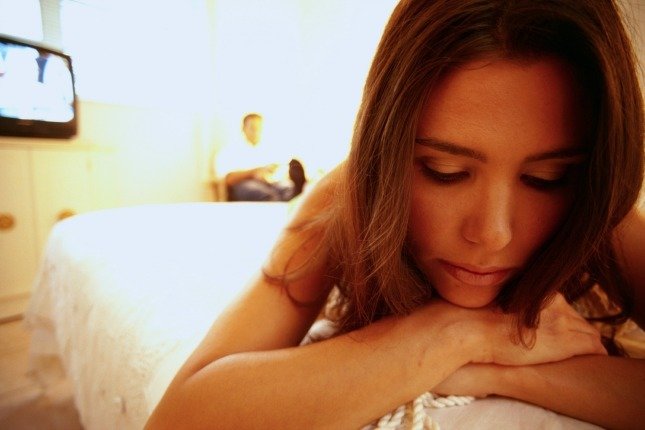After confirming a pregnancy in your first trimester, there's a one in five chance of suffering a miscarriage. Miscarriages are often a taboo subject–especially in our culture, but there's no reason to keep silent or place blame on yourself. The truth is there's no way to prepare yourself for the emotional pain that comes with the loss of a pregnancy. However, there are certain facts about miscarriage that could shine more light on your situation and leave you feeling empowered, supported and hopeful.
It's not caused by intimacy

In a new survey revealing the common misconceptions of miscarriage, eight percent of participants were unsure whether intimacy causes women to miscarry. While a lot of couples fear that sex will cause miscarriage, this is medically not the case. Instead, miscarriages are largely due to abnormal chromosomal development or other growth complications.
You shouldn't feel guilty

While it's normal to mourn a miscarriage, it isn't healthy to internalize it and place blame on yourself. Fifteen to 20 percent of pregnancies result in miscarriage and there's no way of preventing it. Make sure you talk to your doctor and loved ones to get the emotional support you need.
Exercise doesn't cause miscarriage

If you're a healthy woman who exercised prior to getting pregnant, there should be no reason to stop out of fear that it will cause a miscarriage. The American Pregnancy Association advises that being active for 30 minutes everyday can benefit a mom-to-be's health. Talk to your doctor before starting a new workout routine.
Your weight does make a difference

Both weight extremes could increase your chances of suffering a miscarriage. Overweight moms-to-be are at higher risk of suffering from poly-cystic ovary syndrome.
It doesn't mean you'll have another miscarriage

A common myth is that if you've had a miscarriage then you're more likely to have another one. Medical research has found that to be totally false. However, suffering two miscarriages does increase your chances to have another one by 20 percent. Talk to your doctor to be clear about your individual circumstance.
Bleeding doesn't always mean miscarriage

It's normal to freak out if you notice some bleeding while pregnant, but this could also be a common first trimester symptom. As your uterus expands, it could cause cramping and light bleeding. However, call your doctor if you notice any bleeding or experience constant cramping.
Mourning is normal

Depression in couples is common after suffering a miscarriage. A shift in brain chemistry and brain hormones also contribute to the emotions. It's important to take time to grieve and find support among close family and friends. Seeing a therapist could also help.
A previous abortion shouldn't increase chances of miscarriage

Having a previous abortion should not increase your chances of miscarriage. Women who have had abortions are able to carry their baby to full term. However, having had three or more abortions could cause a weaker cervix, which could increase chances of losing the pregnancy.
Colds don't cause miscarriage

Don't freak out if you end up battling a cold during pregnancy. Common colds, allergies or a sinus infection have little to no chance of causing a miscarriage. If you experience a high fever, it may be a bacterial infection or serious flu that requires medication. Make sure you consult with your doctor.
You don't have to wait a really long time to try again

Some doctors ask their patients to wait 16 to 18 months before trying to conceive again. This allows time to be emotionally and physically recovered from the experience. However, others believe that you can start trying a few months after. Keep your health top priority and stay positive.




